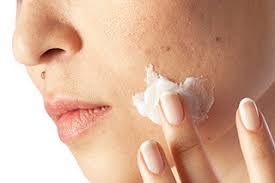How to Create An Effective Skin Care Routine Less is more” is often touted as the best beauty advice you can follow. But that isn't necessarily the case with your skin care routine. Your skin care routine should work for your lifestyle, your skin type, and your budget. However, it also should include certain types of products - the essentials, if you will. Here are the six products that you absolutely must include in your skin care routine (and typically in this order). 1. Cleanser The obvious first step: A good cleanser sets the stage for your whole routine. Ultimately, your cleanser should be gentle, water-soluble and able to remove your makeup. Avoid anything with soap in it - soap’s pH level is too basic and will dry our your skin. When it comes to finding the best cleanser, let your unique skin be your guide and choose a product designed to target your primary skin concern (whether that’s acne, dryness, oiliness or sensitivity). 2. Toner Toner often gets dismissed as overkill, but as part of a comprehensive skin care regime, toner is actually a pretty crucial step. Not only does it remove any oil or makeup residue, but it also preps your cleansed skin to receive whatever treatments you put on next. Think of it like a pre-serum or a pre-moisturizer. Most people choose to skip toners, partly because there’s a lingering assumption that most toners are harsh and irritate the skin. Fortunately, that’s not the case anymore. While they don’t physically “shrink” pores, the new breed of toners can serve multiple purposes, like act as a delivery system for antioxidants, vitamin B derivatives and even toning acids. Additionally, each type of toner is intended for a different skin issue, so it’s important to use the right kind for your skin concern. Choose a gentle, non-alcohol-based formula with skin-repairing ingredients, as well as calming and anti-inflammatory properties. 3. Exfoliator This is a crucial, though definitely not daily, step in your skin care routine. The best ways to go about exfoliating your face is to either use a cleanser with chemical exfoliants in it or use a dedicated physical exfoliator. Either way, look to use this product about twice a week. Chemical exfoliators are best for sensitive skin, and physical ones (with gritty bits) are good for occasional use if your skin is on the dry and flaky side. 4. Serums Serums are one of the most important skin care products you can use. Serums are super-concentrated, nutrient-dense treatments that address specific concerns (brightening, repairing, hydrating, anti-aging, etc.), so it’s better to keep them as close to the skin as possible. There are various serums available on the market today, but antioxidant serums, which provide a variety of benefits from blunting your skin’s inflammatory response to neutralizing damage from UV rays and environmental pollutants, are generally recommended. 5. Targeted Treatments These are the big guns, generally for treating blemishes, dark spots and physical symptoms of skin conditions, like eczema. Targeted treatments usually have powerful ingredients that should be used sparingly and (usually) at night to avoid damage from sun sensitivity, but they really work. Retinols and hyperpigmentation treatments fall into this category. 6. Moisturizer The last step in your skin care routine is as important as the first. Yes, everyone needs a moisturizer, even if you have oily skin. Even though your body has its own natural lubricating system consisting of glands that secrete oil to maintain a protective coating against harsh outside conditions and infections, most of us do need extra hydration after the havoc that sun, weather and harsh chemicals wreak on our skin. No matter what state your skin is in, it needs to remain hydrated. Luckily, moisturizers are made for all kinds of complexions, either oil-free or loaded with skin care goodies like antioxidants and vitamins. You can use a facial oil as a moisturizer, too, no matter what your skin type. Different types of oils have different benefits, but generally, skin likes it because it matches its own sebum texture. 7. Sunscreen Last but definitely not least is sunscreen. Sunscreen should be the last step in your daytime skin care routine if you’re using a physical or mineral sunscreen, which works by physically blocking the UV rays. Since the sun is one of the most damaging forces to the skin and overexposure can increase your risk for various types of skin cancer. Help your skin protect itself by never skipping the sunscreen. Conclusion Aside from the order of application, some experts believe it’s also important to consider the time it takes for your skin to absorb your products. However, since most of us are often in a rush to get somewhere (or hit the sack), this isn’t always possible. The answer to this riddle? Keep your skin care routine simple. Many products say you have to wait anywhere from five to 30 minutes before the next step to ensure proper absorption, but who has time for that? If you make it too complicated, you just won’t do it. If you have many steps, pause for a bit (a minute) to allow each product time to react with the skin. Another piece of advice? Listen to your skin. Remember that you are unique and that nobody else has your skin. No matter what experts say, it’s important to find what works for you and to always be kind to your skin. We use and recommend Dermalogica skin care products! Book a facial with us today by clicking the button below.
0 Comments
Your comment will be posted after it is approved.
Leave a Reply. |
|
